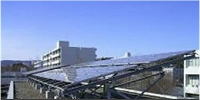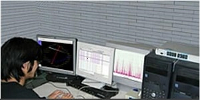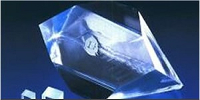Electrical Engineering

The Department of Electrical Engineering consists of two groups: the Systems and Control Engineering Group and the Advanced Electromagnetic Energy Engineering Group. The former group focuses on new energy utilization, power electronics systems, electrical energy systems with low environmental load, verification, control, and optimization of concurrent systems, and analysis, planning, and optimization of large-scale complex systems. The latter group investigates the realization of nuclear fusion power by powerful laser and magnetic systems, and develops new technologies on the industrial infrastructures with the fusion technologies. For students, the department offers the Course of Electrical Engineering. Students study systems engineering, control engineering, electric power engineering, electric machines, laser, plasma, high energy particles, beam systems and so forth in the this course. In addition, the department is collaborating closely with three research areas in the Institute of Laser Engineering on education and research.
Keywords: Systems and control engineering, Smart grid, Power electronics, Game theory, Electromagnetism, Energy, Power laser, Nuclear fusion energy, Plasma
Information and Communications Technology

Information and communication networks, dispensable infrastructure, have further been developing with the recent advance of wireless communication technologies. Currently, the amount of traffic in networks are increasing rapidly according to the spread of mobile terminals such as smart phones, and in near future, the Internet of Things will emerge, where everything is connected to networks. The key technology supporting the circulation of those information is nothing but the development of high-speed, robust, and high-functional networks. The Department of Information and Communications Technology (ICT) stems from the former Department of Communication Engineering, established in 1940 as one of the first communication engineering departments in national universities and currently our department consists of nine laboratories (including two cooperative laboratories). Our faculty members provide the master course of ICT, where students can study fundamental theory to up-to-date applications in photonic networks, wireless networks, and multimedia communications systematically and acquire hardware and software technologies of ICT in good balance. Being proud of many graduates of our department, who are active in the frontiers of ICT, we will continue to bring up excellent engineers.
Keywords: Computer networks, Ultra-high-speed photonic networks, Broadband multimedia networks, Broadband wireless communications, Quantum photonic communications, Nonlinear photonic communications, Remote sensing, Data mining, Machine learning, Cyber security
Quantum Information Electronics

Electronics technology offers one of the indispensable fundamental technologies such as information technology (IT) including computer technologies and optical communications to most fields in the highly civilized modern society. Thus, the electronics field as well as the interdisciplinary fields related such as medicine-engineering collaboration one are expected to further progress for the future. In the Department of Quantum Information Electronics, in order not only to further expand advanced applications of the electronics technologies but also to create future technologies through innovations in technology, various researches and educations are carried out on the following research subjects: electronic and optoelectronic materials including novel semiconductors and inorganic/organic functional materials; fabrication and analysis of microscopic structures, quantum structures and new functions; construction of advanced fundamental theories on electronic / optoelectronic / photonic devices and invention/verification of their new devices; advanced integrated circuit technologies; next-generation IT; application to biotechnology and life science.
This department, which is organized by both three regular areas composed of ten laboratories and two cooperative areas composed of five laboratories, develops the above various researches covering from atomic scale to macroscopic scale using advanced apparatuses and offers the concerned education program with its optimized curriculum to aim to produce researchers or engineers who have a basic academic knowledge and practical skills generally required in the electronics field.
Keywords: liquid-crystal device, IoT, organic electronics, photon computer, photonic information and communications, quantum information processing, neuronal information analysis, semiconductor nanoelement, atomic-scale architecture imaging, THz biosensing, optic material, information photonics